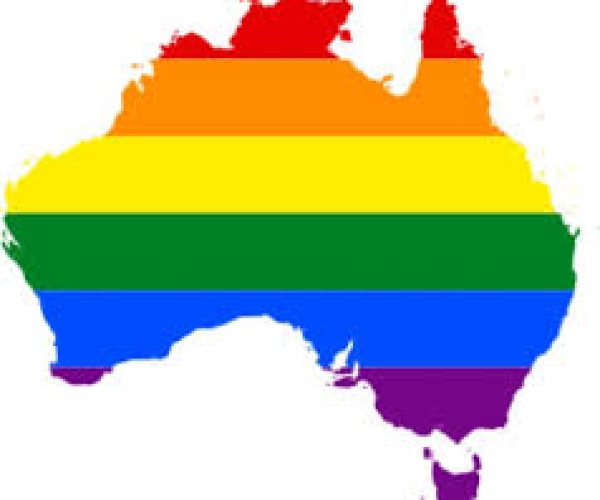Marriage Equality and your mental health

My Marriage Equality Postal Survey form arrived in the mail recently and I was very eager to have my say on such an incredibly important issue. There has been so much discussion about marriage equality over the past few months, and the debate is likely to intensify.
Discrimination and harassment is already a real issue for people who identify as LGBTQI+, and this can lead to poorer mental health outcomes. In fact, people who identify as LGBTQI+ are at higher risk of suicide and self-harm behaviour. With all the community discussion about marriage equality going on at the moment you don’t have to look far to see the prejudiced attitudes and the hurtful and aggressive language being used, particularly across social media.
The APS (Australia’s largest professional association for psychologists) has warned psychologists to anticipate that LGBTQI+ clients and their families, particularly children, might be experiencing more stress and distress than usual in the context of the public campaigns during the postal survey. It is therefore so important that we all take the time to not only consider the negative impact of the debate on LGBTQI+ people, but that we also take action to be supportive of our LGBTQI+ friends, family members, and broader community members.
WHAT CAN WE DO TO SUPPORT OUR LGBTQI+ FRIENDS, FAMILY AND COMMUNITIES?
Although same sex marriage is already legal in many countries and polls reportedly show that the majority of Australians support same-sex marriage, some people oppose it on ideological or religious grounds, or because it seems so different from what they are used to. It can be confusing to know how to respond and how to provide support to others, especially as there are so many misconceptions around the issue. Fortunately there is loads of reliable information available to help navigate your way through the debate in a respectful and helpful way. Some ideas include;
- Let your friends know you care about them and check how they are going amidst all the debate
- Get involved, be supportive in the community by talking about marriage equality, sharing respectful articles on social media, and encouraging people to vote
- Ask what else you could do to help
- Become informed about marriage equality. Educate yourself!
- Encourage your friends to consider getting some psychological support if they are feeling distressed
WHAT ABOUT CHILDREN?
Children are likely to have already heard something about the debate, perhaps at school, with friends or online. And we can’t forget that they are often overhearing our adult conversations! The APS has released a tipsheet specifically to support adults in talking to children about marriage equality and related issues (see here). Some ideas include:
- treat this time as an opportunity to discuss topics such as relationships, respect, and diversity. Let your kids know you are happy to discuss these ideas and answer questions
- Give children simple answers to questions about LGBTQI+ words
- Focus the conversations on love and committed relationships
- Let children know there is diversity in how people love each other. People can fall in love and want to be in a relationship with people of the same sex or with people of a different sex or gender
- Educate yourself about the marriage equality survey and the common misconceptions.
- Offer alternative views of relationships. Not everyone wants to get married, but it is the right to choose whether or not to get married that is important
- Discuss how discrimination is hurtful and harmful to people
- Take the opportunity to teach children the pro-social values that everyone deserves respect and that no one deserves any act of aggression for their sexual orientation, gender, identity, race, religion or culture.
HOW TO SUPPORT YOURSELF?
As with any particular period of life stress, there are many things that we can do to take care of ourselves. ACON, Rainbow Families and APS are some of the services providing guides to help you stay strong and resilient during the debate. Ideas include;
- Acknowledge what you are feeling. Talk to someone you trust if you are feeling distressed.
- Take a Facebook holiday! Log-off social media for a while if needed.
- Make a plan. Prepare a list of things you can say in situations that you might find challenging.
- Look after your body. Ensure you are getting enough rest, healthy food, and fresh air.
- Take a break. Do something you enjoy and have some time-out.
- Remind yourself that mean or poorly informed remarks say more about the speaker than whoever they are targeting.
IDEAS TO SUPPORT SOMEONE WHO HAS BEEN UPSET BY HOMOPHOBIC OR HURTFUL VIEWS
- Acknowledge their feelings
- Let them know that they don’t deserve to be bullied or abused
- Let your friend/family member/ child know that you love them for who they are
- Encourage your friends to get psychological support if they are feeling distressed
- Stand up against prejudice.
HOW CAN PSYCHOLOGISTS HELP
Psychologists are bound by the APS Code of Ethics which demands that we avoid discriminating unfairly against people on the basis of age, religion, sexuality, ethnicity, gender, or disability. The Code further states that psychologists assist their clients to address unfair discrimination or prejudice that is directed against them. The APS takes the view that marriage equality is a human rights issue and therefore supports full marriage equality, regardless of sexual orientation or gender identity. As psychologists we pride ourselves on taking a non judgmental stance to all our clients.
At Prosper Health Collective we have many clients who identify as LBGQTI+. If you are finding the current political issues associated with this vote are impacting on your wellbeing, we are here to help.
After all, love is love.